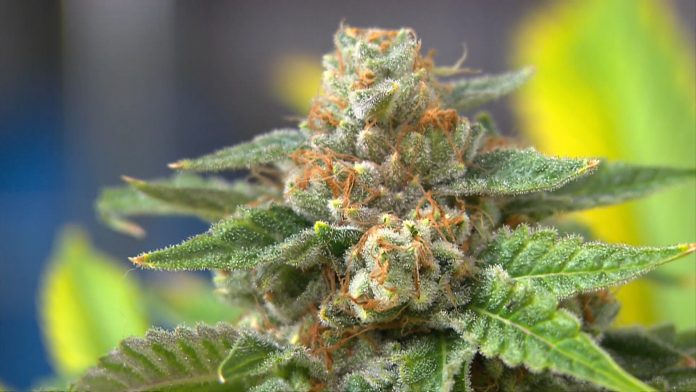
U.S. Rep. Dana Rohrabacher, R-Calif., just made a striking admission: speaking to a group of marijuana activists on Capitol Hill, Rohrabacher said he had recently turned to medical marijuana to help deal with arthritis pain — and that it worked.
Two weeks ago, Rohrabacher said, he tried a topical wax-based marijuana treatment. That night, it was “the first time in a year and a half that I had a decent night’s sleep because the arthritis pain was gone,” Rohrabacher said.
Rohrabacher is one of the leading conservative voices on overhauling marijuana laws in the U.S. Congress. He’s the architect of a provision in federal law that prevents the Department of Justice from interfering with state-level medical marijuana operations. But his statement is nonetheless noteworthy because, according to one closer observer, it marks the first time in at least several decades that a sitting U.S. congressman has admitted to marijuana use while in office.
“This is definitely the first legislator in Congress in at least thirty-some-odd years who has acknowledged to using marijuana illegally,” the National Organization for the Reform of Marijuana Laws’ executive director, Alan St. Pierre, told Russ Belville of Cannabis Radio yesterday.
Medical marijuana is legal in Rohrabacher’s home state of California. But it remains illegal for all uses under federal law. The Drug Enforcement Administration considers marijuana to have “no currently accepted medical use” and “a high potential for abuse.” Marijuana is placed in Schedule 1 of the Controlled Substances Act, a designation reserved for the most dangerous drugs, including heroin.
But this federal designation is increasingly at odds with medical evidence and scientific consensus. A growing body of research is finding that marijuana can be effective at treating chronic pain and muscle stiffness — the types of things that an arthritis sufferer like Rohrabacher might have to deal with. Patients with these conditions are often prescribed powerful (and deadly) opioid medications. To the extent that marijuana could substitute for those drugs, more access to medical marijuana could literally save lives.
The Drug Enforcement Administration is currently considering a motion to move marijuana out of Schedule 1 and into a less restrictive classification, a move that could remove many barriers that currently stifle marijuana research. Some observers are skeptical, though, given the DEA’s previous attempts to block research and the organization’s general resistance to changing norms on drug use.
Meanwhile, patients are left to navigate the often messy world of medical marijuana research and regulations on their own. It remains to be seen whether Dana Rohrabacher’s experience may cause his congressional colleagues to give medical marijuana reform a second look.
(c) 2016, The Washington Post · Christopher Ingraham


